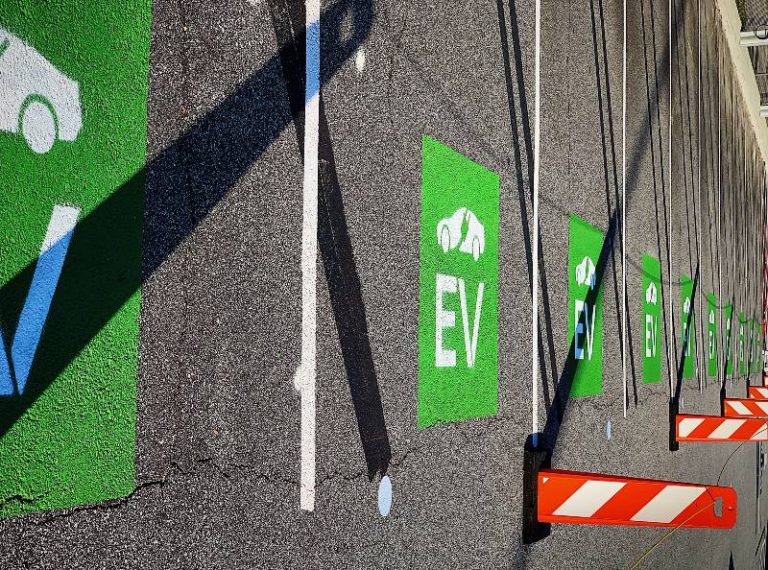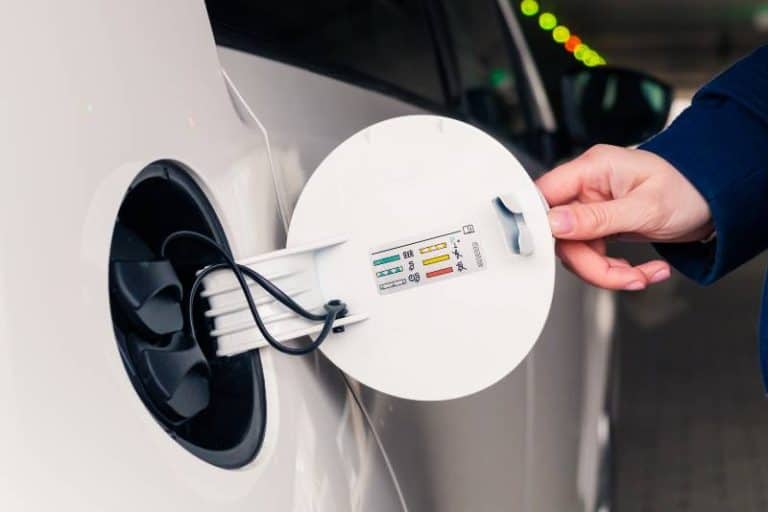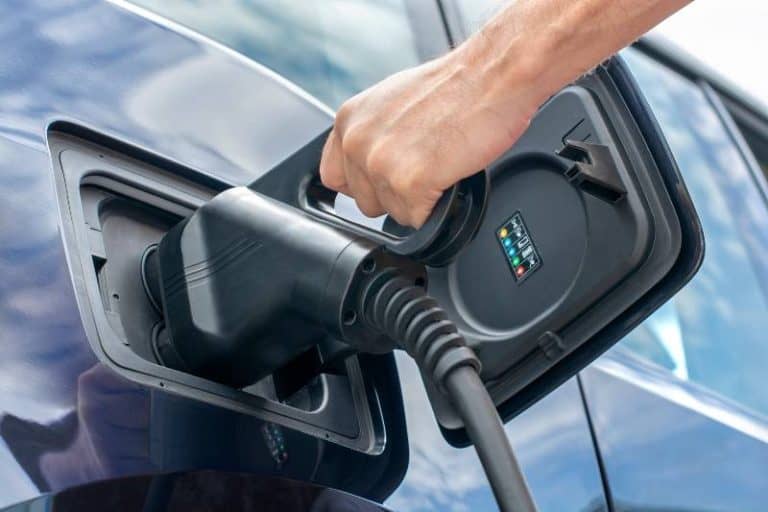Why Should I Get An Electric Car?
Electric cars are becoming more and more popular and for a good reason! They offer a number of amazing benefits that you simply can’t find in traditional gas-powered vehicles. In this blog post, we will discuss the amazing benefits of electric cars. If you’re on the fence about making the switch, and you’re always asking yourself: Why Should I Get An Electric Car? Read on to see how awesome electric cars really are!
Electric cars don’t burn fossil fuels, which means they don’t emit harmful greenhouse gases into the atmosphere. This makes them great for your health and for our planet’s health—and one of the best ways you can help in your daily life.
Key Takeaways
- Electric cars offer amazing benefits that you can’t find in traditional gas-powered vehicles. They don’t burn fossil fuels, so they don’t emit harmful greenhouse gases into the atmosphere.
- They are also often cheaper to run than traditional cars, as they use far less electricity and don’t require any fuel.
- Electric cars may cost more upfront but can save you money over time with lower running costs.

Intro
What is an electric car?
An electric car, or EV, is an automobile that uses one or more electric motors to power the wheels. This means that the car doesn’t use gasoline or diesel fuel to operate—instead, it uses electricity from a battery that’s charged by plugging the car into an electrical outlet.
While the term “electric car” is often used interchangeably with “hybrid vehicle,” there are distinct differences between the two. Hybrid vehicles use gasoline and electricity to power their motors, while electric cars only use batteries.
The growing popularity of electric cars has been attributed to several factors including reduced greenhouse gas emissions, lower fuel costs, increased efficiency, and lower maintenance costs, among others.
Is Now the Right Time to Buy an Electric Car?
But buying an electric car isn’t always a slam dunk—depending on where you live, it may or may not make financial sense for you. There are also other factors to consider before making a purchase; we’ll go over some of them here so you can decide whether or not now is indeed the right time to buy an electric car.
What should you factor into your EV budget?
The most important thing to consider when you’re thinking about your electric vehicle budget is how much you can afford to spend on an electric vehicle. You’ll need to factor in all the expenses that come with owning one, including fuel costs and maintenance costs.
Here are some of the factors you should consider:
What are your typical driving needs?
Driving requires you to pay attention to your surroundings at all times. You need to be aware of what’s happening around you, especially when driving. You should also be able to predict where other vehicles and pedestrians might be in order to avoid a crash.
In addition, you should always keep your eyes on the road ahead, even if you’re stopped at a red light. If you’re on a highway, it’s important that your attention never wanders from the road in front of you for more than about two seconds.
If possible, try not to drive while talking on a cell phone or distracting yourself with music or other noises. This can cause accidents by causing drivers behind you to take evasive action when they see you doing something unsafe.
More importantly, you should also avoid driving with drowsiness or fatigue because these can impair your ability to handle a vehicle as well as reduce reaction time and judgment skills necessary for safe driving.
How will you regularly charge your electric vehicle?
The most common way to charge an electric vehicle is with a home charging station. These are usually installed by the electric utility company in your area, but there may be some other options available as well.
However, you should use an EVSE, which is a stand-alone electrical outlet that’s designed specifically for charging an electric vehicle. It serves as a dedicated charging station for all EVs, as well as hybrid vehicles, plug-in hybrids, and fuel cell cars.
Additionally, electric vehicle charging stations are usually located close to where people live or work, depending on where you live. You can also find them at gas stations, parking lots, and even public places like malls and airports.
When you plug your electric vehicle into a charging station, it will start charging immediately and stop once it has been fully charged. Electric vehicles don’t just charge themselves; they also need power from the grid to operate.
As soon as the electric vehicle is plugged in, it will begin charging its batteries and continue until it reaches 100% full charge.
If you want to know how far EVs can go on a single charge, make sure to read the article here.
Environmental benefits
Reduction of greenhouse gas emissions
Greenhouse gases are considered to be the main cause of climate change. The primary greenhouse gases are carbon dioxide (CO 2 ), methane (CH 4), and nitrous oxide (N 2O).
These gases all trap infrared radiation in the atmosphere and have been called “greenhouse gases” because they help trap heat from the Sun, keeping Earth warm enough that liquid water can exist on its surface.
To keep global warming at 1.5 °C (2.7 °F), emissions of greenhouse gases must peak before 2025 and be cut by 43 percent by 2030; emissions of methane must be cut by nearly a third at the same time. Almost certainly, even if we do this, we will experience a period of time when temperatures are higher than this barrier, but by the end of the century, we may be back down below it.
Electric cars are a good way to reduce greenhouse gas emissions and one of the environmental benefits of electric cars is that they don’t produce any tailpipe emissions. Since there’s no exhaust, there’s no need for clean car filters or other devices to reduce harmful gases.
Cleaner air
The electric car has zero co2 emissions, so there’s no smog in the air or toxic fumes from gasoline engines. The electric car also emits no carbon dioxide or other greenhouse gases. In fact, it uses about one-third less fuel to travel the same distance as a conventional car.
It’s true that electric cars still produce some carbon dioxide when they’re charging their batteries — but that’s far less than what you’d get from gasoline-powered vehicles. Plus, electric vehicles are cleaner than gas-powered ones because they’re powered by electricity rather than petroleum products.
Conservation of fossil fuels
Fossil fuels are one of the main reasons for the greenhouse effect, which is causing global warming. Fossil fuels also cause air pollution and contribute to smog in cities as well as acid rain caused by sulfur dioxide emissions from coal-burning power plants.
Using electric cars would reduce this problem because they produce no greenhouse gases and have zero emissions during their operation. Aside from that, electric cars run on batteries that do not produce these harmful substances when they are discharged into the atmosphere, so they are much cleaner than combustion engines in terms of air pollution and acid rain.
No Engine Noise
Electric cars do not make noise from exhaust pipe like gasoline-powered vehicles. This makes them more environmentally friendly since they don’t contribute to noise pollution.
Economic benefits
Lower operating costs
Electric cars have lower operating costs than gasoline-powered vehicles. First, they have no fuel cost. Electric cars don’t use fuel or oil, so they’re not subject to price volatility. As a result, they’re much cheaper to maintain and repair over time.
As of March 2022, the cost per mile of operating an electric vehicle is far lower than that of a gas-powered vehicle. Across the country, electric vehicles have a per-mile cost advantage of $3.50 to $1.25. Some electric vehicles are five to six times less expensive to operate in the states of Arizona, Florida, Georgia, Nevada, North Carolina, Tennessee, and Virginia.
Government incentives and tax credits
The Government is providing tax breaks on purchases of electric vehicles (EVs) in order to encourage more people to buy them and push down emissions. Incentives are also being provided to help promote public acceptance of EVs, and there are plans to develop charging stations across the country, both for those who own EVs.
Lower maintenance costs
Electric cars rely on batteries which are charged with electricity generated by a power station. The cost of buying batteries has gone up due to increasing demand and increasing prices. This leads to higher maintenance costs for car owners.
Good thing that electric cars won’t need to be serviced as often, which means owners can save on costly repairs and downtime. In addition, electric cars don’t require oil changes or tune-ups like gas-powered vehicles do. This means those who buy an electric car will have lower maintenance costs over the course of ownership.
Lower lifetime costs
Electric cars are much cheaper to maintain than their gasoline counterparts, and most models can be powered by electricity from a home or office power source. The only parts that require replacement are batteries, which can be easily swapped out for new ones when necessary.
Performance and convenience
Improved acceleration and handling
Electric car acceleration is faster than that of a conventional car. However, electric cars have shorter ranges than gas-powered cars. The range of an electric car is dependent on the amount of energy used to charge it.
Reduced noise pollution
Noise pollution is a serious problem in most cities, especially at night. The noise of cars and trucks passing by, or honking their horns, can be annoying, especially when you’re trying to sleep.
Reduced noise pollution is one of the biggest advantages of electric cars. The quietness of electric cars is not only due to the way they are powered but also because the engines do not need to spin at high speeds like those found in gas-powered vehicles. This allows them to be quieter and therefore more comfortable for drivers.
Availability of charging infrastructure
Electric vehicles can run on batteries that have the capacity to provide a range of up to 40 kWH or more. The faster you drive, the more power is used and the battery will lose charge.
The availability of charging infrastructure is very important in terms of electric car adoption. If there are no charging stations around, then people wouldn’t be able to charge their cars even if they wanted to do so. If you don’t have access to a charging station and your battery is dead, then you might as well buy another one.
Some people may argue that the availability of charging infrastructure is not the only reason why we should adopt electric cars but it’s still an important factor for us to consider because it affects how many people decide whether or not they will purchase an electric car.
Advantages of charging at home
The biggest advantage of charging at home is convenience. You can charge your electric car whenever and wherever you want. You don’t have to worry about running out of power, or having to find a place to park your car.
The next biggest advantage is cost. The cost of charging at home is usually much less than the cost of charging at a public charging station. And with more charging stations popping up all over the place, it’s getting easier and easier to find one that is convenient for you!
But the last advantage is that you can charge anywhere there’s an outlet in your garage or driveway! Just remember that if you want a charging station at home you must have an EVSE and not just an ordinary outlet.
Future of Transportation
The shift toward electrification
Many advantages can be gained by electrifying the transportation system, such as a wider range of fuel options, less reliance on fossil fuels, cheaper total cost of ownership, and more predictable prices. In addition, we must work toward greater environmental protection, self-sufficiency in energy production, and the preservation of our nation’s defenses.
Potentially huge advantages for the power industry could result. One out of every nine new cars sold in the world in 2035 will be an electric model. Countries in Asia and Europe are seeking to ban the use of automobiles powered by fossil fuels.
With the emergence of novel mobility models and technologies, the market for EVs is expected to expand at an exponential rate. Utilities will be happy to provide the electricity needed to charge EVs.
Potential for even greater environmental and economic benefits
The future of transportation is a lot closer than you think.
We’re living in an exciting time, where the way we get around is changing faster than ever before. We’re already seeing significant changes in the way people get to work, and these are only the beginning!
There are many reasons why this is happening. For starters, consumers are demanding more environmentally-friendly vehicles that don’t use as much gas or other fossil fuels. They also want vehicles that are fun to drive and comfortable for passengers. And last but not least, they want vehicles that look good!
The good news is that manufacturers have been listening. They’ve been working hard to meet these demands by developing new technology and new ideas for how transportation should work in 2030 and beyond. This new technology includes self-driving cars and electric cars—all of which will help us move around more quickly and efficiently than ever before!
As a result of these technological advances, we expect to see some major changes in the way people get from point A to point B over the next decade or so.
Additional Reasons to Get an Electric Car
Why We Need to Electrify Everything Before the Grid Is Fully Green
As you may have heard, “the future is electric”; that is, electric vehicles (EVs) and induction stoves are replacing gas-powered vehicles and home appliances since they are more energy efficient. The shift away from fossil fuels and toward a greener tomorrow cannot occur soon enough.
To put it another way, if we want to reach net-zero emissions by 2050, we’ll need to decarbonize everything from our homes to the electrical system. One of the most effective strategies to date for limiting global warming to 1.5 degrees Celsius and so limiting the worst effects of climate change.
What does it take to actually bring about this change?
Focusing on the main polluters, such as transportation, buildings, and power, decarbonization aims to reduce or eliminate carbon emissions from a certain technology or sector. It’s an enormous project, but progress has been made. Electrification, on the other hand, necessitates the replacement of fossil fuel-powered technologies with those that operate more efficiently when powered by electricity. This also requires switching to renewable energy sources to power the grid, rather than using fossil fuels.
Because of this, you may be wondering if, instead of looking to plug everything in, we should increase our use of renewable energy sources. The quick answer is that we must push forward aggressively with both at the same time.
Global auto markets are shifting toward electric
In the realm of sustainable energy, the electric vehicle sector is one of the most dynamic and exciting places to be right now. In 2021, 6.6 million EVs were sold, more than doubling the previous year’s total.
In 2012, just 120,00 electric automobiles were sold around the globe. In 2021, weekly sales will average over 100% higher than that. In 2021, electric vehicles will account for nearly 10% of worldwide sales, up from 2% in 2019.
This tripled the number of EVs on the road worldwide to roughly 16.5 million from 2018. During the first three months of 2022, global sales of electric automobiles reached 2 million, up 75% from the same period in 2021.
Multiple forces are contributing to the growth of the electric vehicle market. The primary support comes from continuing policy initiatives. In 2021, government investment on electric vehicle subsidies and incentives almost doubled, to approximately USD 30 billion.
More and more nations are promising to ban the use of internal combustion engines by some point in the future, and many of them have lofty goals for the electrification of vehicles over the next few decades.
Is buying an electric car the right choice for me?
The answer to this question depends on many factors. To start with, you need to consider whether your lifestyle is compatible with electric cars. If you live in a city, where you can charge your car at home and at work, then an electric car may be ideal for you. However, if you live in a rural area where there are no charging stations nearby or if your commute takes more than half an hour each way, then an electric car might not be the best option for you.
It’s also important to consider the cost of owning and maintaining an electric vehicle (EV). While EVs have lower maintenance costs than gas-powered vehicles due to fewer moving parts and fewer fluids that need changing regularly, they do require some household upgrades such as installing outlets for charging purposes.
Finally, it’s important to consider how much money it’ll cost over time compared with what you’d pay for a traditional gas-powered car with similar features and capabilities. This involves looking into several factors like fuel efficiency (which affects how much money you’ll spend on gas), maintenance costs over time (which affects how much money you’ll spend on repairs), insurance rates (which affect how much money you’ll spend on insurance), and depreciation (which affects how much value you lose over time).
But overall, an electric vehicle is great for the environment and your wallet, so it’s definitely worth considering if you’re in the market for a new car.
Why Should I Get An Electric Car FAQs
Do electric cars save you money
On average, driving an electric car instead of a car with an internal combustion engine costs about half as much. This means that plug-in EVs save you a lot of money.
Is it really worth buying an electric car?
If you are concerned about the environment and want to save money in the long run, investing in an electric vehicle might be something you want to look into. However, purchasing one can be pricey and may necessitate making certain changes to one’s lifestyle, particularly with regard to the amount of time spent charging the device and the amount of power saved.
What is a battery electric vehicle (BEV)
A type of electric vehicle known as battery electric vehicles, pure electric vehicle, only-electric vehicle, fully electric vehicle, or all-electric vehicle is one that gets its power solely from the chemical energy stored in rechargeable battery packs. There is no other source of propulsion besides these batteries.
What are the 3 disadvantages of electric cars?
1. They can be expensive: Electric cars are more expensive than their gas-powered cousins—sometimes by as much as $10,000.
2. They have quite a limited range: Electric cars can only go so far on a single charge, so drivers have to be strategic about where they go and how long they plan to be away from home or the office.
3. There’s not a lot of charging infrastructure: Most people don’t have access to public charging stations, which means they’ll need to invest in an at-home charging system if they want to take advantage of this new technology.
Are electric cars worth it in 2023?
Yes! There’s no doubt that electric cars are worth it. They’re more efficient, they cost less to maintain, and they have lower emissions. But if you want to know whether or not an electric car is right for you, the answer depends on a few factors—like your budget and how far you drive each day.
Conclusion
Electric cars have become increasingly popular due to their environmental and economic benefits. They are more efficient, require less maintenance, have lower emissions, and cost less to operate than gas-powered vehicles. However, there are a few things to consider before making the switch—including the cost of purchasing an electric vehicle, the availability of charging infrastructure in your area, and the amount of time you plan to spend charging it. Ultimately, electric cars are worth considering if you’re looking for a new car that will save you money in the long run.






